Find Your Force! How To Overcome Your Social Anxiety
It's time fight back.
How would you describe a socially anxious person? If you haven't experienced social anxiety directly, your mind's probably painting a picture of an awkward person who doesn't go to parties much, or a loner on the school bus. Would you be surprised if I told you that a socially anxious person could also be the life and soul of a party; that the loud voice coming from the back row can also scream isolation? More complicated than your best mate's on-off relationship, social anxiety has many different faces – and it can affect every single one of us.
As defined by the Social Anxiety Institute, social anxiety is “the fear of interaction with other people that brings on self-consciousness [and] feelings of being negatively judged and evaluated.” If you feel, or have felt, anxious or inhibited in a variety of social situations – from parties to peeing in a public restroom – chances are you are already pretty well acquainted with this very awkward elephant in the room. That elephant may be familiar, it may have been with you for as long as you can remember, but that does not mean it is you – and it definitely doesn't mean you should let it run wild and trample over your enjoyment and success in life.
Social anxiety is associated with increased risk of alcohol abuse, depression, loneliness, decreased occupational advancement and increased likelihood of remaining single. That elephant ain't cute, it's nasty, and it's high time you jump on top and take control. Be strong, refuse to give up, practise these steps for as long as it takes to turn your life around. Here's how to overcome your social anxiety.
Stop Avoiding Things
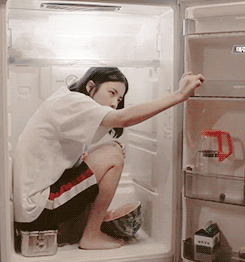
Let's take the biggest social anxiety trope as our first example. You've been invited to a party – let's say it's the office Christmas do, because no party fills most of us with quite as much dread as that regrettable time of the year we are obliged to get drunk and eat the last dregs of the year's budget with our insufferable colleagues. Despite rarely knowing what day of the week it is, you've been woefully counting down the days till the event for weeks. You've been anticipating the humiliation of inevitably getting trashed in front of your boss, and worrying about being judged for your refusal to dress like a tinseled fucking Christmas tree and have your precious baubles gawped at by the annoying photocopier guy. Today is the big day and despite telling yourself – and everyone else – that you definitely will be there, you're already thinking up excuses. “Fuck it,” you tell yourself, “nobody even cares whether or not I come anyway.” With your decision not to go, you feel a wave of relief; the anxiety immediately decreases.
Like a reward, the reduction of anxiety when avoiding or escaping the party reinforces avoidance, and as a result maintains the fear of negative social evaluation even when you aren't experiencing humiliation or having a shitty time. The immediate drop in anxiety effectively teaches you that in order to feel less anxious, you should just avoid social situations as much as possible. The only winner here is your stubborn brain elephant – because, ultimately, excuses will always be there for you, but opportunities won't. The only way to overcome it? You gotta face that fear head on. Practise approaching social situations and staying in them until your thinking is inevitably rewired. Doing this, you'll learn that nothing bad is actually going to happen and your anxiety will subside. It might be challenging at first, but you're guaranteed to get an empowering kick when you relinquish the control.
Rate Your Fears

You've spent enough time rating celebrity hotties, burger joints and beauty products – hell, you've even rated yourself as at least a solid seven – so there's no reason you should stop at the positives. Rate your anxiety-triggering experiences to set up a hierarchy of fear; after all, the only way you can have any hope of training that elephant is by dragging it out in the open and getting familiar with it. Take that Christmas party as an example; rate each of your anticipated behaviors from 0 to 10 – 0 meaning absolutely no anxiety and 10, a panic attack. Your list would look something like this: Thinking of going to the party (3); going to the party (5); walking into the room (6); seeing the annoying photocopier guy in the room (7); negotiating the definitely-not-vegan finger food (4); starting a conversation with your boss (8); talking with your office crush (9).
Whatever the anxiety-triggering scenario, it's important you take the methodical approach of writing down your predictions like this and comparing them with how you actually end up feeling at the event. It's pretty likely you won't end up as anxious as you thought you would be, which is guaranteed to take the edge off the anxiety next time.
Test Yo'self
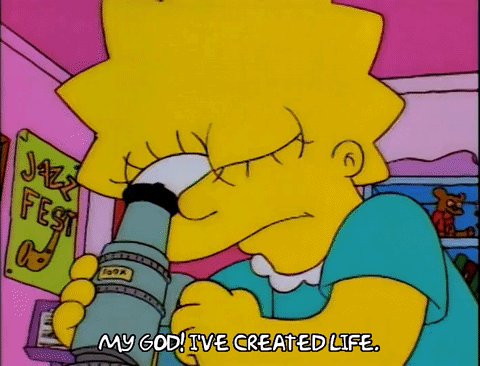
Be your own scientist, and your own experiment – the sexy white-coated brainiac and the chemical reaction. As above, write down your predictions – it's also great if you can write down more specifically what you predict will happen and how long you'll anticipate feeling anxious for. In the example of the Christmas party, where you rated the anxiety levels of making conversation with your boss an eight, you might also note that you expect to feel this level of anxious for the entire duration of the conversation and that you will struggle to hold eye contact or speak without stuttering. Think of this as your scientific hypothesis. Then go into the event and see whether that hypothesis was correct – when you've had more practice with this technique, you might even enter the situation with the aim of disproving yourself. Despite feeling very anxious at the beginning of the conversation with your boss, you might find that the anxiety quickly subsided from eight down to three and that you were able to keep eye contact for the entire time – make a record of it, and keep making records, as this is the evidence you need to work towards banishing the social anxiety elephant for good.
Lose The Training Wheels
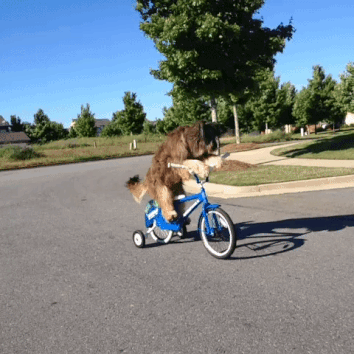
Think back to your first bike. At first, having those training wheels on felt pretty swag – that kind of low-riding trike feel that had you cruisin' around your hood like Chamillionaire. They see me rollin', they hatin', patrolling... But soon you mastered your balance and sought speed and thrills instead: the stabilizers that once kept you safe by preventing you from falling were now getting in your way. It's the same with the safety behaviors you're clinging on you because you think they're the only way you can get through socially anxious situations.
Here are just a few examples of social anxiety training wheels: self-medicating with alcohol, cigarettes or drugs; wearing neutral clothing to avoid calling attention to yourself; taking roles that minimize others' interaction with you; using defensive body language and avoiding eye contact; avoiding anything that might induce anxiety or symptoms. You might tell yourself the only way you can get through that dreaded Christmas party is if you have a drink beforehand, or go out every ten minutes for cigarette breaks. However, there's tons of scientific research that says safety behaviors actually harm your ability to get past the anxiety in these situations. If you want to get over this for good, it's essential that you push yourself; go in without your training wheels and you'll prove to yourself you didn't need them after all. This is where you'll find the real thrills.
Challenge Your Thoughts
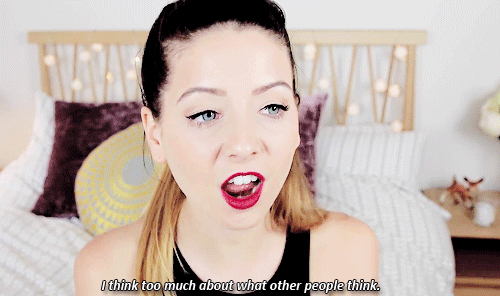
Remember that that irritating brain elephant is actually your subconscious mind. It does social anxiety by default because that's what it's been trained to do by lingering negative memories and time-honored thought patterns and connections. Like all the other things you do without thinking – from breathing to driving – it's an automatic process, but that doesn't mean it can't be challenged. If you don't want to have social anxiety, you don't have to, but you have to commit to consistently bringing these automatic behaviors into your conscious mind and questioning them.
You might be telling yourself that going to the Christmas party will lead to catastrophic, swallow-me-whole embarrassment, but stop for a second and think about it – apply your scientist's logic – and you'll soon realize that these thoughts have absolutely no grounding in reality. How likely is it, for example, that everyone in the room is going to stare at you when you enter? How likely is it that anyone will care how many red wines you end up drinking, since everyone else will be tipsy too? Is there any real danger of harm? Probably the most important lesson you need to learn here is that people rarely care or notice as much as you think they will; they have themselves to worry about, after all.
Don't allow yourself to be taken prisoner, to be moved through your own life like a puppet. Keep applying your conscious mind and not only will your worries start to chill down, but the more you depart from your old ways of thinking, the faster your brain will rewire.
Practise, Practise, Practise
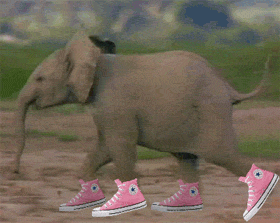
Finally, this ain't no quick fix: you gotta keep it up. Keep putting yourself in these triggering situations, keep testing and analyzing your reactions, keep challenging your thoughts, keep triumphing over your fears. You may have learned how to control the elephant but you can't be up there riding it, getting where you want to go in life, if you keep on falling off.
For more life advice, check out these top tips on self-acceptance.












